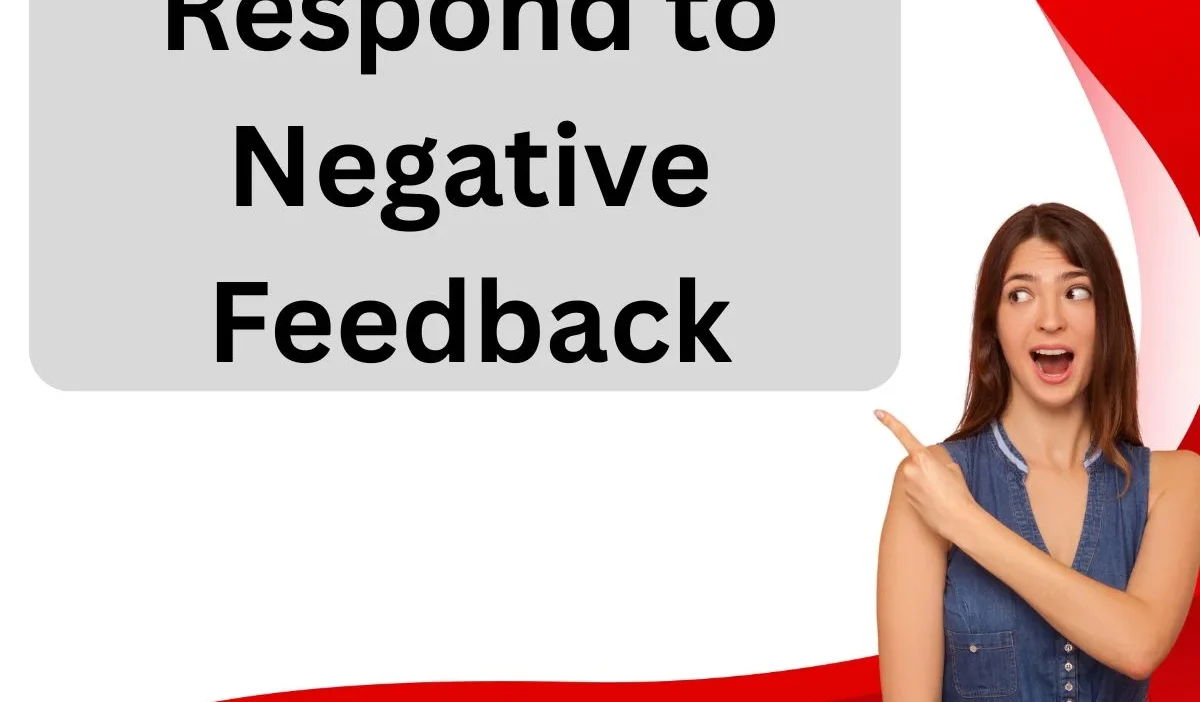If you’ve ever wondered how to respond to negative feedback the right way, you’re not alone.
Maybe you searched for ways to stay calm, keep things professional, or simply avoid hurting feelings while addressing criticism. Well, your search ends here.
This article will show you a variety of smart ways to respond to negative feedback.
Different settings and moods call for different responses — from formal replies in work emails to casual conversations with friends, or even idiomatic phrases to lighten the mood.
Let’s explore helpful phrases grouped into formal, informal, idiomatic, and professional categories so you can pick the perfect way to respond every time.
Formal Ways to Respond to Negative Feedback
When you want to show respect and maturity, especially in serious or official situations, these formal responses can help you accept feedback gracefully and constructively.
- Thank you for bringing this to my attention
- I appreciate your honest feedback
- I will take your comments into consideration
- Your observations are valuable for my improvement
- I acknowledge the points you raised
- I regret any inconvenience caused
- I am committed to addressing these concerns
- Thank you for helping me see this from a different perspective
- I will review the issue carefully
- I understand your concerns and will work to improve
- Your input helps me grow professionally
- I appreciate your constructive criticism
- I am open to discussing this further
- I apologize if my actions caused any dissatisfaction
- Your feedback is essential for my development
- I will implement necessary changes
- Thank you for your candid remarks
- I take your feedback seriously
- I will strive to improve based on your comments
- I welcome your suggestions for improvement
- I value your perspective on this matter
- Please know that I am committed to making things right
- I will follow up once I have addressed the issue
- I appreciate you pointing out areas for improvement
- Your feedback will guide my future actions
- I am grateful for your thoughtful input
- I am listening and ready to learn
- I regret the oversight and will correct it promptly
- Thank you for your patience and understanding
- I am dedicated to continuous improvement
Informal Ways to Respond to Negative Feedback
In casual conversations with friends, family, or peers, these relaxed responses help you stay open without sounding defensive.
- Thanks for letting me know
- I get what you mean
- Good point, I’ll keep that in mind
- Appreciate the heads-up
- I didn’t see it that way before
- That’s fair, I’ll work on it
- Thanks for being honest
- I’ll try to do better next time
- Okay, I hear you
- You’re right about that
- Didn’t realize that, thanks!
- I’ll fix it as soon as I can
- Thanks for the feedback, I appreciate it
- I’ll keep an eye on that
- I know there’s room to improve
- That’s helpful, thanks
- I’ll take that on board
- Thanks for pointing it out
- I’ll make sure to change that
- Got it, I’ll work on it
- Thanks for sharing your thoughts
- I’m glad you told me
- That makes sense, I’ll adjust
- Thanks for being upfront
- I’ll do my best to improve
- I’m listening, thanks for telling me
- Appreciate the advice
- Good catch, thanks!
- I’m on it
- Thanks for your honesty
Idiomatic Ways to Respond to Negative Feedback
Using idioms can add a bit of color to your replies while keeping things lighthearted or clear.
- Point taken
- Noted with thanks
- I’ll take that on the chin
- I’ll chew on that
- Food for thought
- I’ll keep that under my hat
- That’s a good eye you’ve got there
- I’m taking it on board
- You hit the nail on the head
- I’ll take it in stride
- That’s something to chew over
- I’ll sleep on it
- I hear you loud and clear
- I’ll keep my ears open
- That’s a wake-up call
- You’ve given me something to think about
- I’m taking your words to heart
- I’ll turn that around
- I’ll learn from this
- That’s a tough pill to swallow, but fair
- I’m not brushing this off
- I’ll tighten things up
- I’ll get my ducks in a row
- I’ll put my thinking cap on
- That’s a sharp observation
- I’ll take a step back and review
- I’m ready to face the music
- I’ll raise my game
- That’s a spot-on comment
- I’ll keep my eyes peeled
Professional Ways to Respond to Negative Feedback
When replying in a workplace context, it’s important to remain polite, constructive, and focused on improvement.
- Thank you for your feedback; I will take immediate steps to address this
- I appreciate your insights and will work on improving these areas
- Your feedback is valuable and will help me enhance my performance
- I understand the concerns raised and am committed to resolving them
- I am grateful for your constructive criticism and will implement changes
- I welcome any further suggestions to help me grow professionally
- I will review the feedback carefully and update you on progress
- Thank you for your candid observations; they are important for my development
- I apologize for any shortcomings and am taking corrective measures
- Please be assured that I am focused on continuous improvement
- I value your input and will use it to better my work
- I will coordinate with the team to address the highlighted issues
- Thank you for pointing out these matters; I will prioritize them
- I am open to scheduling a follow-up discussion to ensure improvements
- Your feedback has been noted and is appreciated
- I will ensure future work meets the expected standards
- I take responsibility and will take steps to improve promptly
- Your observations help me align better with organizational goals
- I appreciate the opportunity to grow from this feedback
- I am reviewing my approach to prevent similar issues
- Thank you for bringing this to my attention
- I am committed to delivering higher quality work
- I look forward to demonstrating improvement in upcoming projects
- I will seek additional resources to address the concerns raised
- I appreciate your support in helping me develop professionally
- I’m focused on making necessary adjustments moving forward
- Please let me know if there are specific areas you would like me to focus on
- I am dedicated to maintaining open and constructive communication
- I will keep you updated on my progress
- Thank you again for your thoughtful feedback
Conclusion
Knowing how to respond to negative feedback is a valuable skill. The right words can turn criticism into growth and open up new opportunities.
Whether you choose formal, informal, idiomatic, or professional phrases, what matters most is staying calm, listening actively, and responding respectfully.
Practice these phrases, and you’ll be able to handle any critique with confidence and grace. Remember, feedback is not the enemy — it’s a chance to improve.

